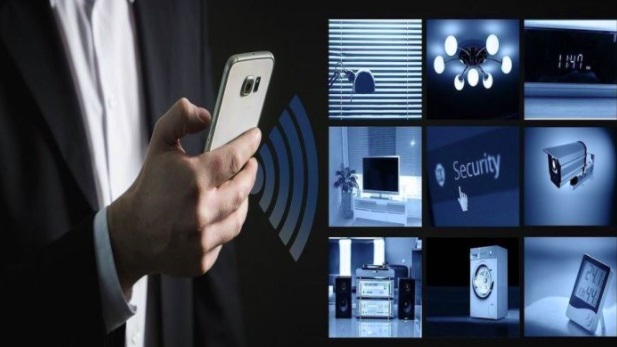Major IoT Security Risks of Your Smart Home; How to Deal with Them
Who would have thought that it would be possible to control your floor heating via voice-activation one day? Yes, a few years back, the idea itself would have sounded a bit awkward. But now, due to the great inventions of devices such as Smartphones and the affordability of such technologies, it's seen as a real possibility and a reality to many.
Many homes have now been equipped with heating, lighting and electronic devices that a computer or a Smartphone can control. The technology allows you to control your energy use by adjusting temperature, shutting down devices that are not getting used, turning lights on and off, and opening and closing window treatments.

By allowing the Smart home system to control everything connected to it on its own, you will notice that it will reduce power consumption, especially when no one is home. In addition, the system will turn off devices that are not in use.
Home Smart apps are connected to the internet, and unfortunately, some of the apps transmit unencrypted data. As a result, hackers can use the data to obtain sensitive information. Therefore, as Smart homes are becoming like the new way of life, you must learn to protect yourself from cyber-criminals.
If you are a resident in Canada like me and own a Smart home, I would advise that you should consider getting premium VPN services in Canada.
Below are the major IoT risks of your Smart Home and how to deal with them.
Identity Theft
Hackers are always looking for a loophole to hack your devices. They get creative with their technique's day by day. One thing that they want more is the database, especially the one for your service provider.
Once they get hold of it, they will now have the access they want. Making it possible for hackers to steal your identity by retrieving personal information from your bank, credit card and social security number. When hackers have those details, they can make unauthorized transactions using your name.
To prevent identity theft, you will need to protect your personal information. Most Smart Home devices are controlled with Smart devices, including Smart Phones. So, make sure that you have a VPN installed on your devices to prevent unauthorized access.
Ensure that the VPN is activated every time, especially when using public Wi-Fi.
Location Tracking
If there is one thing that you simply shouldn't share with people you don't trust is your home location. Smart home devices are connected to a Global Positioning System (GPS), a tracking device detecting the location that you are in. When the GPS collects the location signal, the information is automatically saved to the cloud.
To prevent your location from getting tracked, turn off GPS. Anyone trying to go that far to find your location is not up to something good.
Spying and Monitoring
When it comes to Smart homes, many functions involve audio and video recordings to some available Smart devices. Therefore, security surveillance cameras are vital, especially when keeping an eye on what's happening around your home, even when you are not at home.
Most Smart devices like Alexa, Siri, and Google assistant, record everything said to them and stored records in the cloud. So, you don't have to worry about your records with Smart devices getting stored in the cloud not unless there is a security breach.
When there is a security breach, hackers can access your Smart home devices and use them to give their commands. Here, they gain access to everything you say and do and can use them against you.
If you want to take precautions and prevent hackers from prying you, you must take steps to know how you can use them. First, delete conversations, so they are not stolen. Next, turn off the internet when you are not using it to avoid unauthorized recordings or when you want privacy. Finally, use a secure Wi-Fi router.
Device Hijacking
Device hijacking happens when a hacker gains control of your Smart devices. You will not notice anything as the device will work as it should.
However, when one device is compromised, be sure that the others are not safe either. To prevent this, you will need to keep your access control lock.
PDoS Attack
A permanent Denial of Service (PDoS) attack causes the websites, devices and even systems to shut down completely. In addition, the attack can cause damage to your devices in a way that they will need to be replaced.
To ensure this doesn't happen, you have to keep an eye on your security, especially your Access Control, Encryption, and Authentication. Also, make sure to protect your Smart devices, including Wi-Fi systems, with a VPN.
Conclusion
If you want a Smart Home in Canada or own Smart Home, you should be aware of the risks associated with Smart devices. By doing so, you will take the necessary steps to guard your personal data.